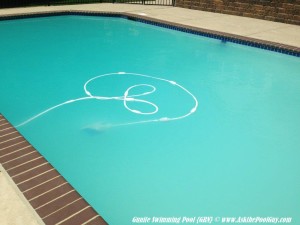 Ever wake up ready to take a dip in your refreshing pool, only to find it cloudy and uninviting looking? This is especially bad when you’re preparing for a pool party. Couldy water is the most common issue pool owners face. Regular and proper care and maintenance is required to keep your pool sparkling.
Ever wake up ready to take a dip in your refreshing pool, only to find it cloudy and uninviting looking? This is especially bad when you’re preparing for a pool party. Couldy water is the most common issue pool owners face. Regular and proper care and maintenance is required to keep your pool sparkling.
How Does Your Pool Get Cloudy?
One factor affecting your cloudy pool is the tiny particles suspended in the water. The particles are often so small that they are unable to be removed by filtration. Most likely they are still large enough to scatter light, yet their size and weight prevents them from sinking to the floor.
Organic and inorganic particles such as dirt, dust, lint, leaves, and bugs, are generally brought into the pool by swimmers. These particles often repel one another, causing them to remain the same hart-to-filter size. In these instances, it is often recommended to use aluminum sulfate or specially designed polymers to help solve the problem.
Aluminum sulfate works by forming a gel-like substance that sticks together. This substance forms bundles in your water (which are called flocs). They trap suspended particles as they fall through the water. This process of bundling of flocs is called flocculation. It creates a large and visible grouping of sediment at the bottom of the pool and the gel-like aluminum substance. This can then be vacuumed out of your pool.
The polymers work in a similar fashion. They are composed of long molecular structures that attract smaller particles, because of their charged nature, and they eventually become a large particle built of many tiny particles. Afterwards, the large particles are able to be removed from the water by filtration or vacuuming.
Pros and Cons of Using Aluminum Sulfate
Generally speaking, the polymer particles’ size and weight causes them to sink to the floor of your pool. This enables them to be easily vacuumed up. So should you use alum or not? Liquid, organic polymer water clarifies work far better and with a lot less hassle to use then aluminum.
If your sole purpose is to clarify your cloudy or hazy pool water, it is better to use a water clarifier than alum. However, if the water is extremely cloudy (and you cannot see into the water except for an inch or so) then a one-time dose of alum may be your best option. It could save you mulitple doses of clarifier. Also, if your goal is to make your sand filter more efficient, then alum may be the better choice.
For more information, contact Ask the Pool Guy!
